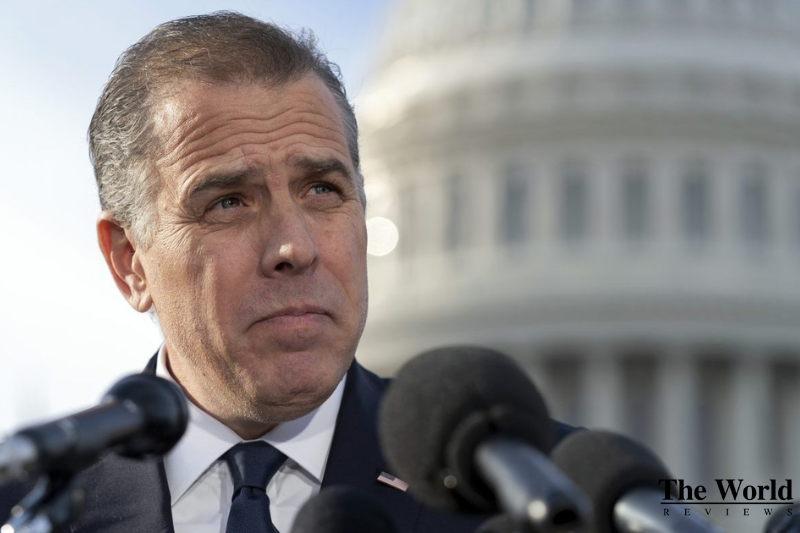
Republican-Led Committees Contemplate Contempt for Hunter Biden: A Deep Dive
In a pivotal move, House Republicans from the Oversight and Judiciary Committees are poised to address the defiance of Hunter Biden, President Biden’s son, against a congressional subpoena. This development marks a crucial step in the GOP lawmakers’ impeachment inquiry into the president, raising significant legal and political implications.
The Confrontation Unfolds
Scheduled for Wednesday, the joint meeting of the Oversight and Judiciary Committees is set to vote on resolutions recommending criminal contempt of Congress charges against Hunter Biden. This comes in response to what Republicans describe as “flagrant defiance” regarding subpoenas issued during the House GOP’s ongoing impeachment inquiry.
GOP’s Allegations and Hunter Biden’s Response
Republicans, in a report released on Monday, accused Hunter Biden of blatant non-compliance with subpoenas issued by the Oversight and Judiciary panels. The subpoenas sought a closed-door deposition from Hunter Biden, constituting a “critical component” of the GOP’s investigation into allegations that President Biden benefited from family members’ overseas business dealings during his vice-presidential tenure.
In response, Hunter Biden, while appearing at the Capitol on the morning of the deposition, opted to defy the subpoena. He delivered a statement to reporters, challenging the Republicans’ probe and accusing them of selective information presentation. Despite affirming his willingness to answer questions from lawmakers, Hunter insisted on doing so only in a public forum.
Republican Chairs’ Response and Legal Ramifications
Following Hunter Biden’s non-compliance, Reps. James Comer and Jim Jordan, chairs of the Oversight and Judiciary Committees, expressed their intent to move forward with contempt of Congress proceedings against the president’s son. This sets the stage for potential legal actions that could significantly impact Hunter Biden’s standing.
Keep Reading
Hunter Biden’s lawyer, Abbe Lowell, criticized Republicans for resisting public testimony, claiming a lack of genuine interest in facts. Lowell posed the question, “What are they afraid of?” as the legal battle intensified.
Legal Scrutiny Beyond Congressional Contempt
Beyond the congressional contempt proceedings, Hunter Biden faces heightened legal scrutiny. Special Counsel David Weiss, appointed in August, oversees a federal investigation into Hunter Biden. This inquiry is independent of the House GOP’s efforts and adds a layer of complexity to the legal landscape surrounding the president’s son.
Pending Federal Court Appearance
Complicating matters further, Hunter Biden is scheduled to appear in federal court in California on Thursday. Last month, he faced charges of nine tax counts, amplifying the legal challenges he confronts. These charges supplement three felony counts related to the unlawful possession of a handgun in October 2018, to which Hunter pleaded not guilty last year.
Historical Context of Contempt of Congress Citations
The House’s potential endorsement of contempt resolutions would add to a relatively rare list of such citations in recent years. Over the past four years, the House approved six criminal contempt of Congress citations, with mixed outcomes. While the Justice Department declined prosecutions in four instances, grand juries indicted former Trump White House officials Peter Navarro and Steve Bannon in the other two cases. Both Navarro and Bannon faced convictions, exemplifying the gravity of contempt charges.
In conclusion, the unfolding events surrounding Hunter Biden and the looming contempt of Congress proceedings bring unprecedented legal and political dimensions. As the House grapples with this decision, the implications for the broader political landscape remain uncertain, underscoring the significance of these developments.




